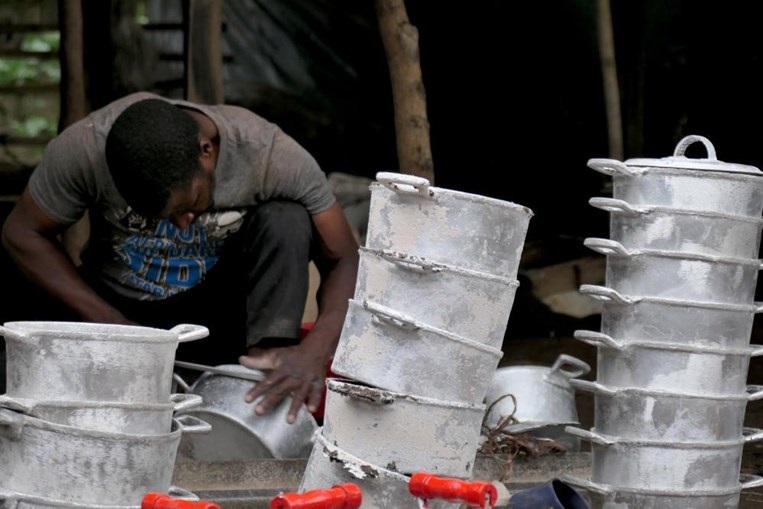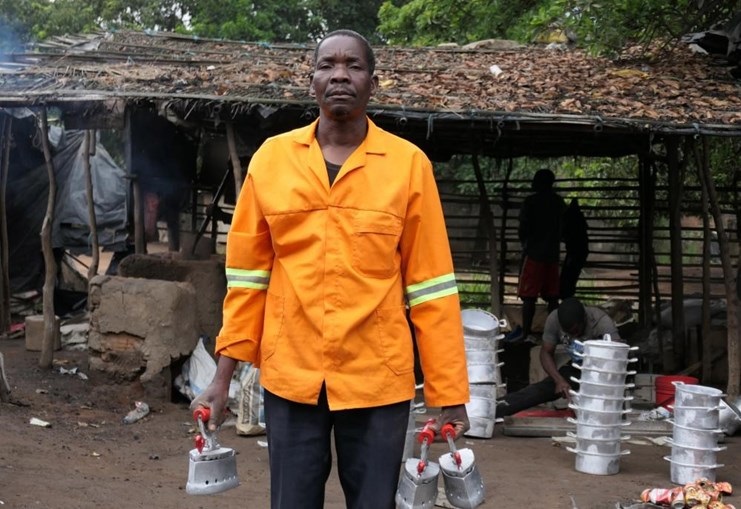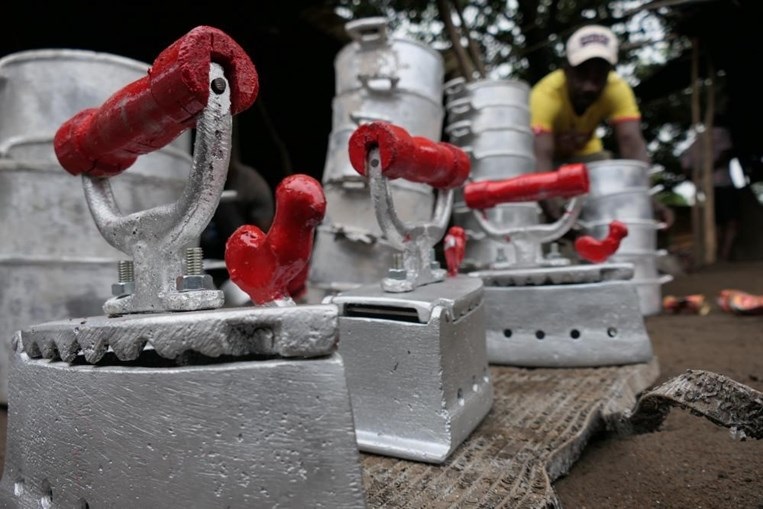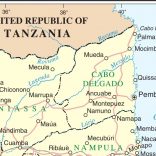Terrorists claim deaths of 11 Mozambican soldiers - AIM
Mozambique: Recycling aluminium to fight off poverty

All photos: Andre Catueira/Lusa
Maria José, 28, stares at the stew of beer cans and scrape metal a ‘cocktail’ that she stirs while boiling on the coals of a traditional oven to extract aluminium to make pots that fight poverty in central Mozambique.
In a suburb of Chimoio in Manica, the artisan and single mother lives off the business of recycling aluminium, the metal she then uses to make cups, frying pans, spoons, charcoal irons and pots, utensils that are much in demand among the low-income population because of their affordability and longevity.
“Per week, sometimes I can make 20 pans, 15 pans or even 30 pans, depending on the movement of the pans or the products that they bring here for us to buy” and recycle, says Maria José to Lusa, leaning on an iron hook, rolled in the upper end with raffia sack, which she uses to stir the stew in the oven.
The woman came to the business by the hand of her mother, also an artisan and a widow, and embraced recycling, now her only livelihood, to support her family, and that helped her to return to school, which she had abandoned due to lack of resources.
“I support my two children and my house based on the pot business”, Maria José stresses, with a shy smile, the only girl among dozens of men with whom she disputes customers.
She is part of a cooperative of artisans that have been recycling beer cans, soft drinks, perfumes and scrap metal since 2020 to make domestic utensils that are still in great demand by families with low income and who live in areas without access to electricity.
Dozens of kilos of cans and scrap metal leave the garbage dumps and streets of Chimoio and arrive as raw material daily at the cooperative “Ferro não se lieita”, to be recycled, helping many families to fulfil the dream of having a conventional, handmade pan.
The president of the cooperative, Rodrigues Viola, told Lusa that 47 workers, including five women, recycle in makeshift tents set up in a borrowed backyard, helping the environment stay free of waste while helping families make ends meet.
The aluminium pot business helps meet workers’ daily food, health and education expenses but also allows them to replace traditional pots made of clay, attracting more customers from the countryside because they can use the same utensil for longer.
“When the population makes those traditional clay pots, they don’t last long, while these pots of ours last five years or even 10 years, to use the same pot,” says Rodrigues Viola, justifying the new attraction for pots.
Ana Otília João, 61, another artisan and oldest member of the cooperative, goes further by assuring that recycling is not only fighting poverty but reducing the marginality of her children, as she already occupies them, earning money picking up and selling cans and scrap metal to the cooperative.
“Our children here were suffering because they were beaten, if they were seen with a metical they would say, ‘you stole from my house’. Now, since the cooperative arrived, everything has improved because everyone is working here”, said Ana Otília João.
The woman says that she buys 20 kilos of aluminium cans and scrap metal and produces eight size-9 pans, or 10 size-8 pans, which make enough profit to cover her monthly expenses and not miss the three meals a day in the house.
Another artisan, Mucheguere Mucheta, specialises in producing charcoal irons and guarantees that there is no shortage of raw material, most accumulated during the Christmas and end-of-year festivities, to continue helping to save energy in the cities and make people clean in areas without electricity.
Most of the customers “come from the localities and some villages where there is no electricity yet” and where the charcoal iron is the only way to keep the clothes neat, Mucheguere Mucheta told Lusa, who on average takes two days to get 30 or 40 irons ready.
“Even in the city, they also look for charcoal irons because the cost of an electric iron is high, besides the high cost of electricity, so they need charcoal iron to save energy,” Mucheguere Mucheta said.
The products of Chimoio’s artisans reach customers in central provinces of Mozambique at low prices and compete for space with various Chinese trinkets flooding the market.















Leave a Reply
Be the First to Comment!
You must be logged in to post a comment.
You must be logged in to post a comment.